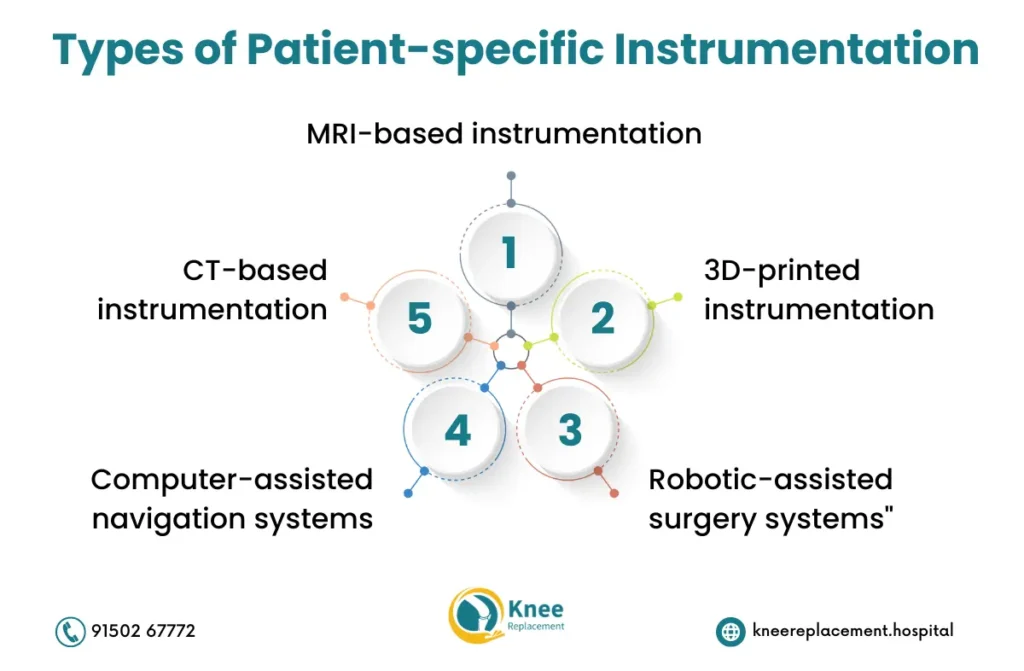
In the ever-evolving landscape of medical technology, the field of orthopaedic surgery has witnessed groundbreaking advancements. Among these, Patient-specific Instrumentation & Implants in Chennai has emerged as a game-changer, empowering surgeons with unparalleled precision and customization in patient-specific instrumentation and implants. In this article, we delve into the transformative impact of this cutting-edge technology on precision surgery tools in Chennai, exploring its applications, benefits, and the role it plays in elevating patient outcomes.
Check out Ceramic Total Knee Replacement Doctors in Chennai.

Precision in surgery goes beyond being an objective—it is an absolute necessity. Patient-specific Instrumentation & Implants in Chennai form the foundation of this advanced approach, offering surgeons a precise roadmap for even the most complex procedures. Utilizing cutting-edge imaging technologies like CT scans and MRIs, detailed three-dimensional models of a patient’s anatomy are created. These models guide the design of customized instrumentation and implants, guaranteeing accurate alignment and a flawless fit tailored to each individual.
At the core of this innovative approach are advanced precision surgery tools in Chennai, carefully engineered to deliver maximum accuracy and efficiency. Often integrated with Patient-specific Instrumentation & Implants in Chennai, these tools include custom-designed cutting guides and individualized implants that redefine surgical standards. The Precision Surgery Tools Chennai are purpose-built to improve surgical accuracy, shorten operation times, and lower the risk of post-operative complications. By adapting to each patient’s unique anatomy, they ensure a truly personalized surgical experience.
Precision Surgery Tools Chennai, surgeons can:
The use of patient-specific Instrumentation & Implants in Chennai spans multiple areas of orthopedic surgery, offering greater precision and personalization. With the integration of Advanced Surgical Planning in Chennai, complex procedures are executed with improved accuracy and better outcomes.
The adoption of patient-specific Instrumentation & Implants in Chennai not only supports surgeons in achieving precision but also significantly improves the overall patient journey. Below are some notable benefits:
In the realm of orthopaedic surgery, Patient-specific Instrumentation & Implants in Chennai through Advanced Surgical Planning has ushered in a new era of precision and personalization. The integration of patient-specific instrumentation and implants represents a monumental shift towards optimized surgical outcomes and enhanced patient well-being.
The cost of implant treatment in Chennai can range between ₹25,000 and ₹1,00,000 per implant, depending on factors like the type of implant, the complexity of the procedure, and the surgeon’s expertise. Additionally, personalized implants may incur higher costs due to the customized design and advanced technology involved. It’s advisable to consult with specialists to get a precise estimate.
Patient-specific implants are customized medical devices tailored to fit the unique anatomy of an individual. These implants are designed using advanced imaging techniques and 3D modeling, ensuring a perfect fit and enhanced comfort. This customization reduces the risk of complications, improves surgical outcomes, and accelerates recovery, making them a preferred choice for complex cases where standard implants may not be sufficient.
While patient-specific implants offer numerous benefits, they also come with some disadvantages. The customization process can be time-consuming and more expensive than standard implants. Additionally, in the event of implant failure, replacements can be more challenging due to the bespoke nature of the device. Insurance coverage may also be limited, increasing the overall treatment cost for patients.
Good candidates for implants are individuals with adequate bone density and healthy gums. Candidates should also have good overall health, as certain medical conditions, such as uncontrolled diabetes or heart disease, may affect the healing process. Patient-specific implants are particularly suitable for those with unique anatomical challenges or previous implant failures, where a custom fit can significantly improve outcomes.
Patients who are not suitable for implants typically include those with insufficient bone density, untreated gum disease, or chronic conditions like uncontrolled diabetes that can impair healing. Individuals who smoke heavily or have a history of substance abuse may also face higher risks of implant failure. Pregnant women and individuals undergoing radiation therapy are usually advised to postpone implant procedures.